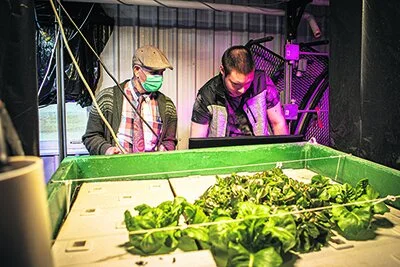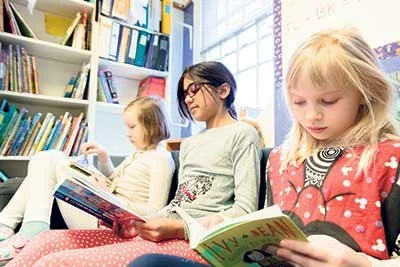Cherylene Pinaroc was 24 years old when she was diagnosed with type 2 diabetes. She recalls her shock as she tried to digest the news her doctor delivered: “My first reaction was that this couldn’t be happening. I was dumbfounded,” she says.
Read MoreIn 1918-19, influenza swept the globe in deadly waves. It is thought to have started in the American Midwest before spreading to Europe and the rest of the world. Aiding its stealthy – and largely unchecked – advance was the fact that countries were hesitant to publicly acknowledge that they were battling an epidemic at home. Many were participants in World War I and were concerned that enemies would take advantage or that allies would halt trading activities.
Read MoreResearchers and mental-health service providers continue to build evidence and refine practices to give individuals with psychosis and schizophrenia the best opportunities to achieve “functional recovery.”
Read MoreDermatologist Dr. Geeta Yadav tells the story of one of her patients, an Indo-Canadian man with severe eczema, who told her he had waited nine years to be correctly diagnosed. “I was able to give him treatment that made him 100 per cent better in a matter of two months,” says Dr. Yadav. “It is awful to imagine that someone would have to suffer like that because the diagnosis wasn’t made for so long and the severity wasn’t identified sooner.”
Read MoreJust a few decades ago, schizophrenia was known as a “kiss of death” diagnosis. The prevailing view was drained of all hope: individuals with this form of mental illness had no chance to recover.
Read More“How does this work?” That’s a question Keelan Hyde has always been keenly interested in, from his parents’ first computer to the internet of things (IoT) to linking devices to gain new – and perhaps surprising – results.
Read MoreOne of the worst nightmares as a parent is not being able to help when your child is in pain. But what if you don’t even realize they are suffering?
Read MoreIn sudden cardiac arrest, every minute that passes before the heart is restarted counts. When the brain is deprived of oxygen for more than four to six minutes, the risk of irreparable damage increases exponentially.
Read MoreMore than ever, Canadians pay close attention to food product labels. They choose healthy options and want to support brands committed to sustainability and corporate social responsibility.
Read MoreHealth crises tend to reveal health inequities and health-care gaps. The COVID-19 pandemic, for example, illustrated the need to make Canada’s health systems more resilient, find a way to efficiently mobilize and integrate new knowledge, and actively engage community partners, especially those representing marginalized and underserved populations.
Read MoreIt seems easier to count lives that have been lost than to calculate those that have been saved. Yet in consideration of the deathly toll of infectious diseases like polio, smallpox or influenza – and the subsequent success in mitigating their impact through immunizations – the World Health Organization estimates that vaccinations save about two million to three million lives annually.
Read MoreOur overarching goal – to address climate change – is more critically important than ever. Yet recent events, such as the coronavirus pandemic and the war in Ukraine, have brought other key components of the clean economy into focus, food and energy security among them.
Read MoreIt may seem a small thing: the little plastic clip holding together your bag of bread. Yet when you consider the number of clips used in households across the country, you can imagine their cumulative impact.
Read MoreCanadian Infertility Awareness Week is a time to profile the impact of infertility, to counteract the stigma many feel and to educate Canadians on the care and treatment options.
Read MoreTwo years ago, on Earth Day 2020, 220 members of Canada’s Clean50 and 180 companies issued a call for adoption of a comprehensive “build-back-better” plan that included a strong focus on supporting the companies and innovations paving the way for a clean economy. This plan was then endorsed by 35 environmental non-governmental organizations. Today, Gavin Pitchford, Canada’s Clean50 Awards executive director and the CEO of Delta Management Group, is happy to report that progress has been made
Read MoreImagine finding yourself at a crossroads. Now picture your surroundings brimming with an incredible variety of food. From mouth-watering empanadas at Las Delicias, a Colombian eatery that fits about five customers, to Jamaican rice-and-pea dishes with jerk chicken, oxtail or salt fish at Fred's Kitchen. Then there is Tabaq, a restaurant offering Indian and Pakistani staples like vegetarian and meat stews served with long pieces of bread.
Read MoreCelebrating diversity and unique strengths
JoAnne (Jo) is proud of how her 25-year-old son Ivan – diagnosed with autism at age five – has built on his strengths and has come into his own.
Read MoreMore than ever, people want to know where their food comes from. This increased awareness of how food is grown and prepared can also help to spark interest in the culinary offerings available in different communities, believes Billy Alexander, director of programs, Culinary Tourism Alliance, a not-for-profit organization aiming to bridge the gap between the food and drink and travel industries.
Read MoreHow many words can you write in 10 seconds? Now, try the same activity with your non-dominant hand or without using any words containing the letter “n.”
Read MoreMore and more, consumers want to know that their food is ethically produced with minimal impact on the environment while still being affordable. Recent research confirms a growing interest of Canadians in improving the food system as a whole – with emphasis on sustainability and transparency.
Read More



















